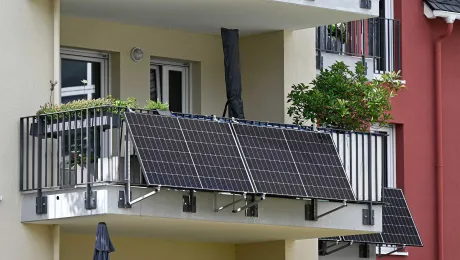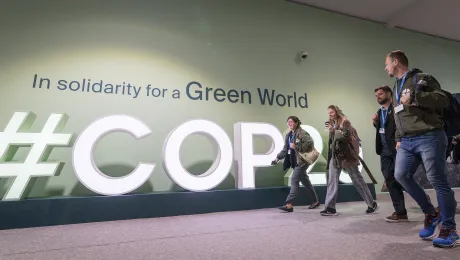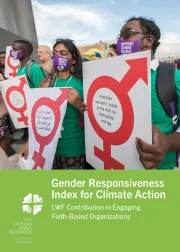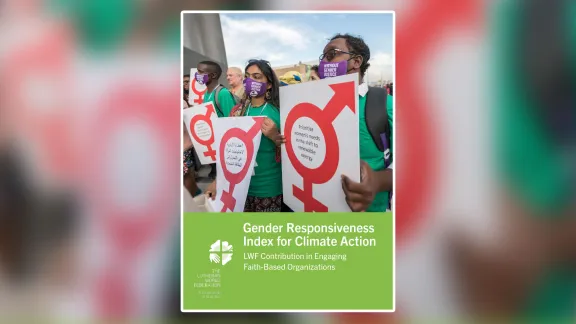
The LWF study presents recommendations for gender-responsive climate policy that is grounded in a faith-based perspective. Photo: LWF/Albin Hillert
New LWF report: Gender Responsiveness Index for Climate Action
How can churches and other faith-based organizations (FBOs) play a role in advocating for policies that address the impact of climate change on women and girls, particularly in vulnerable communities? A new study by The Lutheran World Federation (LWF) highlights the untapped potential of FBOs to ensure that gender perspectives are meaningfully integrated into climate solutions.
The LWF research provides a comparative analysis of countries' performance in implementing the Gender Action Plan (GAP) of the United Nations Framework Convention on Climate Change (UNFCCC). It includes climate policy recommendations rooted in a faith-based perspective to ensure that marginalized voices, particularly those of women and girls, are placed at the heart of climate solutions.
“Climate change doesn’t just exacerbate existing gender inequalities—it also creates an opportunity to empower women as agents of change,” said Elena Cedillo Vargas, LWF Program Executive for Climate Justice. “Faith-based organizations can play a critical role in fostering inclusive climate action, particularly by advocating for the integration of gender perspectives into climate policies.”
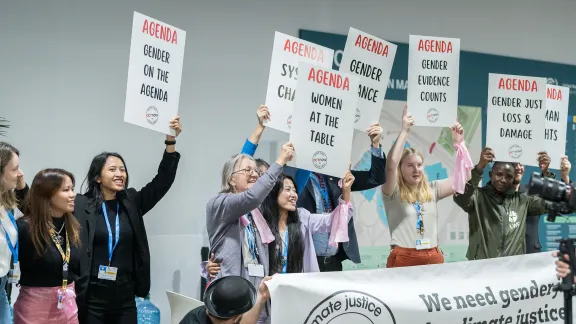
Observing Gender Justice Day at COP29, on 21 November, representatives of the LWF, ACT Alliance and the World Council of Churches join a faith-based advocacy call for gender justice and provision of space for women at the decision-making table. Photo: LWF/Albin Hillert
Climate change doesn’t just exacerbate gender inequalities—it also creates an opportunity to empower women as agents of change
Ms Elena Cedillo Vargas, LWF Program Executive for Climate Justice
The LWF evaluates the GAP performance index ranking in countries in Africa, Asia-Pacific, Latin America and the Caribbean. The findings highlight a striking insight: countries can excel in implementation of climate policy that takes into account gender needs, even when overall gender equality lags, showcasing the transformative potential of targeted policies.
The index shows that while there is room for improvement in implementation of the UNFCCC gender action plan at national level, there are also good practices that can serve as inspiring examples among most sampled countries. Colombia ranks first among the 20 countries surveyed, followed by Peru and Fiji, highlighting both progress and how these countries offer a basis for constructive dialogue and cooperation. The most important drivers for gender-responsive climate actions are also indicated. These include a strong representation of women in leadership positions, collaboration between different stakeholders, international exchange, and promoting the involvement of often marginalized women from rural or Indigenous backgrounds.
Overcoming barriers
Despite some progress, the index identifies significant barriers, such as persistent discrimination, insufficient political will, and a lack of gender-disaggregated data. To overcome these hurdles, the LWF study outlines 18 recommendations, with key proposals on breaking down data to understand the unique challenges faced by women in adapting to climate change. Leadership emerges as a key concern to be addressed through approaches such as training in decision-making spaces. When it comes to financing, the research recommends priorities and budget allocations for projects that empower women and Indigenous communities.
“By supporting their leadership and ensuring their voices are heard, we pave the way for equitable and effective climate solutions,” Cedillo emphasized.
As COP29 moves to the critical phase for world leaders to make commitments on climate financing, this research serves as both a call to action and a roadmap for achieving gender-equitable climate justice. “The path to a sustainable future lies in our collective ability to dismantle systemic inequalities and harness the power of all people—regardless of gender—to combat the climate emergency,” Cedillo concluded.
